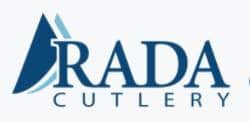Technology, your budget, and even your church facility: these are all things that can heavily influence insurance for your faith-based building. If you’re wondering how, you’re not alone. Understanding church insurance can be complicated, but once you gain clarity, the benefits can be powerful.
In this article, you’ll find helpful insight into church insurance and asset management best practices, as well as steps you can take to reduce your premiums. AkitaBox would like to thank Walt Wellborn, pastor and insurance expert, for his contributions to this Q&A.
AkitaBox: “What types of insurance should a church consider purchasing?”
Wellborn: Many churches wonder what types of insurance they need for their organization. Examples of insurance that a church can buy include property insurance, contents or personal property insurance, liability insurance, commercial auto insurance, flood, wind, hail and earth movement insurance, workers’ compensation, event insurance and umbrella insurance. A church insurance package will generally include property insurance, liability insurance and workers’ compensation. Commercial auto and event insurance are usually separated out.
AB: “What assets are typically covered within a church’s insurance?”
Wellborn: Insurance will cover sanctuaries, air conditioning and heat, electrical, plumbing, commercial kitchens, family centers, schools and similar assets. Sometimes, insurance will also have endorsements for high-end property including stained glass windows, pipe organs, expensive audio or video equipment, alters, railings and artwork.
AB: “Do churches have to carry additional insurance if volunteers are performing custodial or maintenance tasks?”
Wellborn: Many churches try to save on expenses by having volunteers handle building maintenance. However, if a volunteer gets hurt, the church can be held liable since volunteers are not covered by workers’ compensation. A volunteer may not file a claim against the church’s insurance, but significant medical costs associated with the incident may prompt the injured person’s family to file a claim. Multiple claims can drive up the cost of liability premiums and even result in cancellation of insurance. Because of this, insurance companies will often ask questions about who is doing maintenance at a church, as this will play a part in the cost of liability insurance.
AB: “Are there any insurance-related discounts for new or updated equipment in a church?”
Wellborn: Various mechanical changes can help a church save on premiums. For instance, many older churches have boilers. Converting boilers to forced air systems can help churches save a significant amount on their premium. In addition, updating your roofing, electrical, alarm systems and safety equipment can also help save on premiums. As far as discounts go, there are opportunities to save by adding lighting strike preventers, installing sprinkler systems, conducting regular inspections of alarms, and utilizing fire prevention equipment.
AB: “Does hosting community events at a church have an impact on church insurance?”
Wellborn: If a function is part of a church activity, it is usually covered under the church’s general liability policy. Similarly, if a church member hosts an event (such as a wedding) at the church, this event will also be covered by the church’s general liability policy. If the church is rented by a non-member, the renter should acquire event insurance.
AB: “From an insurance point-of-view, why should churches consider purchasing an asset management software?”
Wellborn: Churches are notorious for not documenting repair work or maintenance inspections. Unfortunately, this can be harmful when they are trying to get insurance. Underwriters want to know the maintenance history of the church, and lack of history generally means higher premiums. For example, if a church cannot show the last time their roof was repaired or inspected, the underwriter is going to take his or her best guess — and this is usually not to the church’s advantage. An asset management software captures all this missing information.
AB: “Are there opportunities to get reduced premiums by implementing software that captures routine maintenance and fire/life safety inspections?”
Wellborn: “Having a system in place to track physical asset management shows a desire by the church to keep the facility maintained. Underwriters look favorably on that. When it comes to medium and large churches, there are definite savings to be had in having a system that tracks maintenance, enforces inspection schedules and encourages regular preventive maintenance over crisis management. Statistics have shown that systems and buildings that are inspected and maintained on a schedule have extended asset life and fewer emergency repairs due to fire- and water-based disasters.
AB: “What are some other benefits of using an asset management software in a church?”
Wellborn: In general, it’s not too difficult to show a church where they are falling short on maintenance. Church maintenance teams generally have no way to give insurance companies that information without contacting someone who was there at the time or searching for an invoice that showed the repairs. This process is very time-consuming. Using asset management software is a great way to support preventative maintenance practices and compile important documentation and invoices in one central spot.”
AB: “To justify reduced premiums, what facilities data should a church provide to an insurance company?”
Wellborn: Insurance companies want to see evidence of consistent maintenance within a church. Churches should maintain regular inspection schedules including quarterly roof inspections, annual fire inspections and monthly security inspections. Lastly, churches should compile reports when inspections occur.
AB: “Do you have any closing advice for churches regarding insurance best practices?”
Wellborn: Today, most churches live on a very tight budget. Truth be told, a single incident without insurance can wipe out many churches financially. Make sure to review your policy with your agent at least once a year. Many people are under the mistaken notion that corrections can only be done at renewal and that just isn’t true. Corrections and reports can be presented for consideration to the carrier at any point, which could result in lowered premiums.
About Walt Wellborn
Walt Wellborn serves as the pastor for First Christian Church in Fort Stockton, Texas. He comes from an extensive background in information technology, asset management and church insurance. He is passionate about providing education on how to best protect religious facilities from harm through insurance best practices.
About Meaghan Kelly
Meaghan Kelly serves as the Marketing Content Copywriter for AkitaBox, an asset management software company headquartered in Madison, Wisconsin, www.akitabox.com. Inspired by the latest technologies and innovations in facility management, Meaghan strives to provide building management teams with the tools they need to transform the way they care for their buildings.








